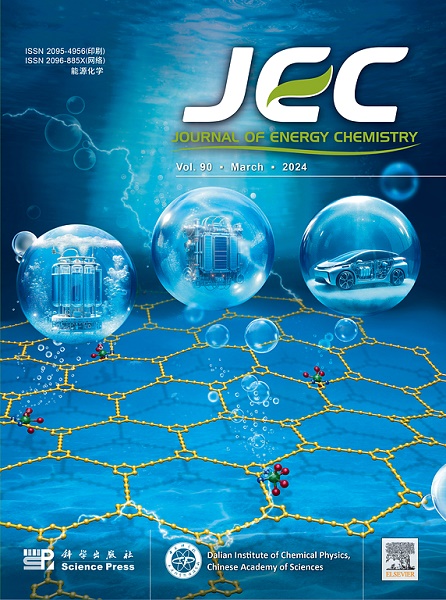Fuzzy physics-informed thermal diagnostics via non-invasive frequency-domain signature distillation in high-energy-density batteries
IF 14.9
1区 化学
Q1 Energy
引用次数: 0
Abstract
Accurate real-time monitoring of internal temperature in lithium-ion batteries remains critical for preventing thermal runaway, as conventional approaches sacrifice either computational efficiency or cross-scenario robustness. We present a generalized fuzzy physics-informed framework that distills thermally sensitive electrochemical processes while circumventing redundant physical constraints, thereby establishing an explicit mechanism-constrained mapping between frequency-domain signals and internal temperature. This framework facilitates online thermal estimation, with dynamic validations in LiFePO4/graphite 18650-type cells confirming real-time capability with near-instantaneous acquisition (∼6 s per measurement), exceptional accuracy (±0.5 °C) within the operational temperature range (30–50 °C), and operational resilience across 20 %–80 % state-of-charge. The framework maintains predictive fidelity (±1.0 °C at 30 °C and ±4.0 °C at 60 °C, 95 % prediction intervals) across 80 %–100 % state-of-health while demonstrating adaptability to cathode materials and structural architectures. This strategy resolves the competing imperatives of physical interpretability, computational efficiency, and cross-scenario generalizability, offering a universal paradigm for embedded thermal management in safety-critical applications.

基于非侵入性频域特征蒸馏的高能量密度电池热诊断
精确实时监测锂离子电池内部温度对于防止热失控至关重要,因为传统方法会牺牲计算效率或跨场景鲁棒性。我们提出了一个广义的模糊物理信息框架,该框架提取了热敏电化学过程,同时绕过了冗余的物理约束,从而在频域信号和内部温度之间建立了明确的机制约束映射。该框架有助于在线热估计,并在LiFePO4/石墨18650型电池中进行动态验证,确认了近乎瞬时采集(每次测量约6秒)的实时能力,在工作温度范围(30-50°C)内的卓越精度(±0.5°C),以及在20% - 80%充电状态下的运行弹性。该框架在80% - 100%的健康状态下保持预测保真度(30°C时±1.0°C, 60°C时±4.0°C, 95%的预测区间),同时展示了对阴极材料和结构结构的适应性。该策略解决了物理可解释性、计算效率和跨场景通用性的竞争需求,为安全关键应用中的嵌入式热管理提供了通用范例。
本文章由计算机程序翻译,如有差异,请以英文原文为准。
求助全文
约1分钟内获得全文
求助全文
来源期刊

Journal of Energy Chemistry
CHEMISTRY, APPLIED-CHEMISTRY, PHYSICAL
CiteScore
19.10
自引率
8.40%
发文量
3631
审稿时长
15 days
期刊介绍:
The Journal of Energy Chemistry, the official publication of Science Press and the Dalian Institute of Chemical Physics, Chinese Academy of Sciences, serves as a platform for reporting creative research and innovative applications in energy chemistry. It mainly reports on creative researches and innovative applications of chemical conversions of fossil energy, carbon dioxide, electrochemical energy and hydrogen energy, as well as the conversions of biomass and solar energy related with chemical issues to promote academic exchanges in the field of energy chemistry and to accelerate the exploration, research and development of energy science and technologies.
This journal focuses on original research papers covering various topics within energy chemistry worldwide, including:
Optimized utilization of fossil energy
Hydrogen energy
Conversion and storage of electrochemical energy
Capture, storage, and chemical conversion of carbon dioxide
Materials and nanotechnologies for energy conversion and storage
Chemistry in biomass conversion
Chemistry in the utilization of solar energy
 求助内容:
求助内容: 应助结果提醒方式:
应助结果提醒方式:


